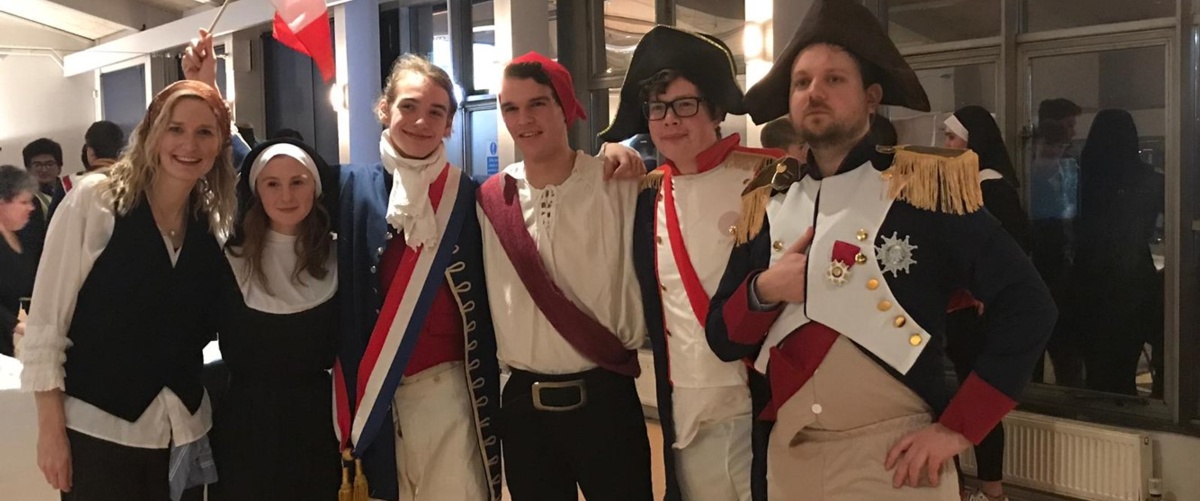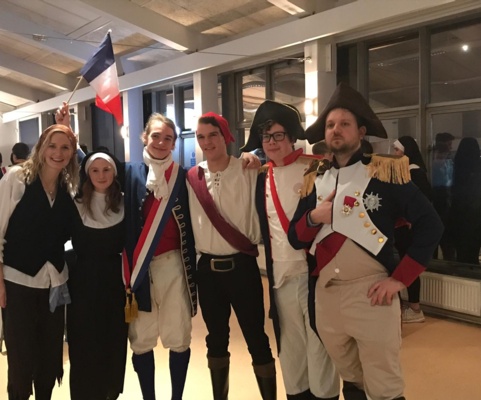History


The study of History introduces us to the sheer variety of human experience. In the interconnected world in which we live, it has never been more important for individuals to have an understanding of humanity in all its bewildering complexity, and empathy for people and cultures different from our own.
The History Department at Norwich School aims to endow pupils with a lifelong enthusiasm for learning about the past. In the first three years pupils study a broad outline of English and European history from 1066 to 1918. If they choose to continue with the subject at GCSE, our focus turns to the history of the 20th Century. As a consequence, Norwich pupils are equipped with knowledge about important individuals, events and developments so that, as adults, they are historically literate citizens.
History demands of those who study it a willingness to read widely, to engage in the critical assessment of evidence, and to develop a sympathetic approach to the wide range of recurrent human problems. A large number of pupils take the subject at A level and, every year, the department is successful in helping pupils apply to read History at leading universities.
4th Form
Lower 4 pupils study the Middle Ages. We begin by looking at the Making of England and the invasions and migrations of Anglo-Saxons, Vikings and Normans, before moving on to consider medieval Christianity and the turbulent relationship between Church and State. Further topics include the Plantagenet monarchs, the development of parliament, the Black Death and the Peasants’ Revolt. We finish with a study of the Crusades.
In Upper 4 pupils study the Early Modern period. We begin with a study of the Italian Renaissance and the Scientific Revolution before moving on to consider the voyages of discovery and the conquest of the Aztec Empire. We study the English Reformation under the Tudors, the defeat of the Spanish Armada, and we finish with a study of the Stuarts and the Civil Wars.
5th Form
In Lower 5, pupils study the birth of the modern world. They look at the growth of the British Empire and the transatlantic trade in enslaved people, before turning to the 'age of revolution' in the forms of the French Revolution and Industrial Revolution. Finally pupils study aspects of the world wars and the process of decolonisation.
In Middle 5 and Upper 5 we follow the Cambridge IGCSE specification. Pupils study International Relations from 1919 through the twentieth century, which includes the legacy of the First World War, the collapse of peace by 1939, and the causes, course and conclusion of the Cold War.
For our ‘depth study’ we focus on Germany from 1918 to 1945: the Weimar Republic, the rise of Hitler and the catastrophe of Nazi rule.
There are two written exams at the end of the course and pupils also complete one coursework essay on culture in Weimar Germany.
6th Form
Click here to view the A Level History subject information.
We follow the AQA specification at A level. We currently run two different courses, each with two components (a British component and a non-British component):
- Course A: Fragile Empires (The British Empire, 1857-1967 & The American Dream: Reality and Illusion, 1945-1980)
- Course B: Rebels & Tyrants (Russia in the Age of Absolutism and Enlightenment, 1682-1796 & The English Revolution, 1625-1660)
Further details of the content of each component can be found at the AQA website: https://www.aqa.org.uk/subjects/history/as-and-a-level/history-7041-7042/specification-at-a-glance
N.B. Pupils can usually express a preference for one of the two courses, and we will try to accommodate this preference in so far as is possible. However, preferences cannot be guaranteed and will depend on the structure and limitations of the timetable and on the combination of the pupil’s other subjects.
In addition, pupils complete one coursework essay of c.4,000 words. Topics include:
- The development of civil rights for African Americans in the USA, 1865-1970
- The American West, 1776-1890
- The witch craze in Early Modern Europe
- The Crusades
History is seen by leading universities as a strong subject: it keeps options open and can lead to a very wide variety of degree courses. Many pupils choose to study History at undergraduate level and the department has helped many pupils to go on to study the subject at Oxford, Cambridge and other Russell Group universities.
Link to relevant external exam boards
CIE IGCSE History - http://www.cie.org.uk/programmes-and-qualifications/cambridge-igcse-history-0470/
AQA A-Level History - http://www.aqa.org.uk/subjects/history/as-and-a-level/history-7041-7042
